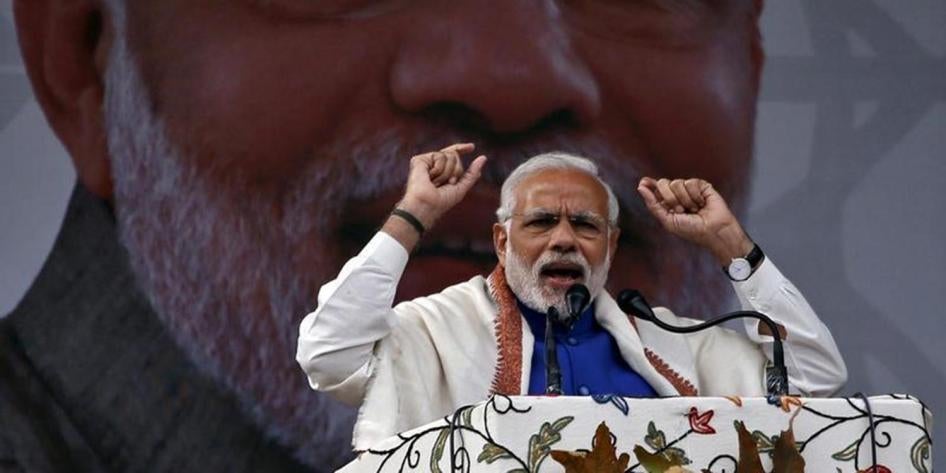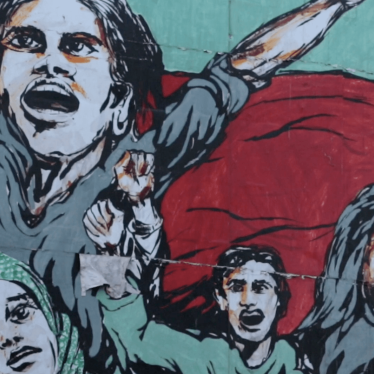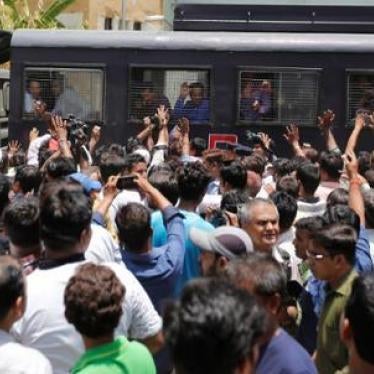After researcher Lois Sofia was arrested in Thoothukudi, Tamil Nadu, on Monday, for shouting slogans against the Bharatiya Janata Party government at the Centre, the BJP’s state chief Tamilisai Soundararajan explained that she filed a police complaint against Sofia because the student “used the word ‘fascist,’ raising her fist and all. I thought I shouldn’t ignore a terrorist.” Sofia had shouted “BJP’s Fascist government down down” while they were both on a flight from Chennai to Thoothukudi.
Last week, the police raided the homes and offices of prominent activists across India, and arrested five of them. The police later told a Pune court that these activists had formed an “anti-fascist” front to overthrow the government.
Both the irony and ignorance on display in these cases would be funny if it were not so disturbing. Sadly, the fact is that there is little room for dissent in India under the BJP. Activists, journalists, lawyers, writers, teachers, actors or artists – anyone who criticizes the government or its divisive ideology – is at risk of being targeted. Either the state deploys its power by arbitrarily cutting off access to funding, ordering audits, issuing warrants for search or arrest; or the BJP’s supporters threaten violence or launch physical attacks. From deeming that to be secular is to be anti-national, or from deciding that to be anti-fascist is to be a terrorist, the heap of wild allegations is unending.
But why is this happening?
Unmet Aspirations
Populist leaders rely on frenzy for their power, but hate is invariably hard to sustain. Initially, many were quick to applaud the crackdown on dissent. It was seen as decisive action needed to promote the idea of Hindu nationalism. The party’s political campaign created an environment where religious minorities were regarded as traitors; the poor and the marginalised, including Dalits and tribal groups, were despised for demanding more protections; and groups or individuals that promoted human rights were vilified as unpatriotic.
But as the government began to falter in pledges of jobs and development, the disappointment over unmet aspirations has become a challenge. There is the inevitable diminishing of support, including discomfort over abusive polices. Sofia Lois shouts her protest at a BJP leader. Students wave black flags at another.
India today feels like a sports stadium where the home team is losing. The cheering supporters, their faces painted in their team colors, waving banners and chanting songs fall silent as the opposing team starts to prevail. Soon the cheering drops to only a handful of the committed who yell but find no echo. Finally, forced to look around, they notice the dismay around them.
Perhaps the roaring support that the BJP had enjoyed when it took office in 2014 has started to die down because of its increasing authoritarianism.
Growing Misgivings
Indians enjoy a debate, but the once proudly free media has been muzzled. Some may distrust Muslims, but when scores of herders are attacked by cow vigilantes and the perpetrators are protected from prosecution, there is misgiving. A country with a tradition of stories, art and movies starts to question monochromatic depictions. They find it hard to accept it when a little girl is murdered after allegedly being raped simply because she is Muslim, and worse to see ruling leaders publicly defend the accused. The crackdown on Dalits – even the most recent attempt to deny the community their right to self-identify – is petty and sad.
The Narendra Modi government can still choose to do the hard work, recognizing that criticism is necessary for reform and that silencing those voices does not solve problems.
To return to the sports example, the fouls that once were celebrated as necessary tough actions have been repeated too often and have lost any sheen. Tripping up opponents once or twice might even have been cheered, but a team that engages in blatant bullying is eventually exposed as one that lacks both good practice and skill.










